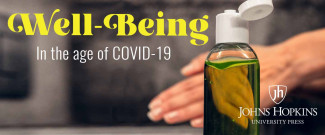
Johns Hopkins UniversityEst. 1876
America’s First Research University
Coping with Behavioral Addictions During COVID-19


By Jon E. Grant, JD, MD, MPH
Although much has been written about stay-at-home orders and people with substance addiction, little if anything has been said about how the shelter-in-place affects the approximately 10-15% of Americans (i.e. upwards of 48 million) who currently struggle with behavioral addictions (for example, gambling, food, internet gaming, sex/pornography, and shopping) as well as whether the current climate may put certain people at risk of developing one of these behavioral problems.
Behavioral addictions are defined as behaviors that are rewarding in some fashion (i.e. giving the person some sort of mood boost, or even conversely relieving stress) and done to an extent that the person feels out of control, unable to curtail the time they spend on the behavior, and it leads to some sort of personal distress or impairment in their functioning. While these behaviors are often fun and distracting initially, they may be potentially problematic if done excessively. The current climate that keeps people at home with fewer distractions means that they have greater access online to certain problematic behaviors, such as gambling, gaming, pornography, and shopping; and less access to external variables (for example, running errands, going to work, spending time with others) keeping them from over-indulgence of these behaviors.
Thus, for those who currently struggle with these behaviors, there may be an uptick in the behavior during this time. Individuals trying to stay away from gambling, sex, or shopping, may find that urges to engage in the behavior are heightened due to economic or job stress, boredom, or loneliness. Additionally, the ease of engaging in these behaviors online may make them more compelling.

For those who may be vulnerable to developing one of these behavioral addictions, possibly through life events such as trauma, personal history of substance addictions, or genetic links with substance addiction in the family, they may find that one or more of these behaviors are beginning to become excessive or problematic. For this second group, one way to recognize a behavioral addiction in oneself or a loved one is to see how much control they have over the behavior. Can the person turn off the internet, can they avoid more problematic sites online, are they still doing things that need to be done at home and do appropriate self-care such as get good sleep, exercise, and nutrition?
- First, do an honest self-assessment of how the particular circumstances of COVID-19 may be engendering or worsening your desires or behavior; this may allow you to recognize the limited and specific context of the problem and how management of it may be time-limited as well
- Second, assess how much time the behavior occupies in your life, when and how you are engaging in it, and how it is affecting you and/or a loved one.
- Second, create a realistic list of healthy behaviors to replace the unhealthy one(s). These healthy behaviors may have to be new ones given the COVID-19 restrictions but they can often be versions of things you have done previously;
- Third, schedule time for these healthy behaviors, ideally at the high-risk times when you are doing the unhealthy option so that healthy directly competes with unhealthy.
- Finally, if these approaches are not enough, individual therapy via the internet or telephone is available during the pandemic, as are many 12-step programs (and there are many 12-step programs for each of the behavioral addictions).


